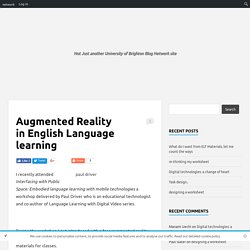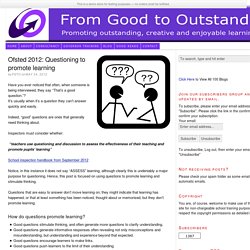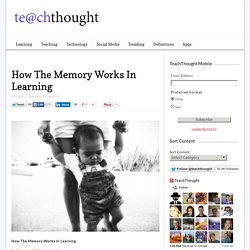

Robert Martínez
I'm a teacher trainer and assessor on Cambridge ESOL Teaching Awards. I'm also a lead tutor on the Trinity College London validated CertICT by TheConsultants-e.com.
K20 LEARN. Why Schools Should Be Wary Of Free Tech Products. When I was a middle school science teacher, I oftentimes found myself digging into my own pockets to pay for equipment — Bunsen burners, test tubes, dead frogs. And that didn’t change when one-to-one iPad programs in schools became popular; in fact, it added yet another item, software, to my to-buy list. So, you can imagine my excitement when I found free online products, especially those that seemed flashy. It didn’t even cross my mind back then that using free tools (and more importantly, asking my students to use free tools) could be problematic and even potentially dangerous — more so than the free consumer products I was finding online and using in my own time. But in the world of edtech, “free” isn’t only a danger to the users — it’s quickly becoming more and more of a danger to the makers of edtech, as well.
The concept of free doesn’t always pay — especially for those entrepreneurs looking to pay back hungry investors. To the users: Nothing is really free Take Edmodo, for example. Learning First, Technology Second The Educator’s Guide to Designing Authentic Lessons By Liz Kolb. By Liz Kolb Learning with technology doesn’t happen because a specific tool “revolutionizes” education. It happens when proven teaching strategies intersect with technology tools, and yet it’s not uncommon for teachers to use a tool because it’s “fun” or because the developer promises it will help students learn. Learning First, Technology Second offers teachers the professional learning they need to move from arbitrary uses of technology in their classrooms to thoughtful ways of adding value to student learning.
This book includes: About the Author Liz Kolb is a clinical assistant professor at the University of Michigan. Media Reviews. iFrame Generator - Free Online iFrame Code Maker Tool. Its all about the learning! Augmented Reality in English Language learning. I recently attended Interfacing with Public Space: Embodied language learning with mobile technologies a workshop delivered by Paul Driver who is an educational technologist and co-author of Language Learning with Digital Video series.

During the workshop I got introduced with a free augmented reality application Aurasma and how it is used to create and design learning materials for classes. Augmented Reality (AR) is defined as ”a variation of Virtual Environments (VE), which allows the user to see the real world, with virtual objects superimposed upon or composited with the real world.” AR-based mobile learning material helps engage learners in numerous learning activities. For example, Liu & Tsai (2013) investigated the use of augmented reality materials to develop writing skills in EFL classes. they used global positioning and AR techniques.
The students were asked to introduce their campus. . ( The above picture is taken from Liu & Tsai study: shows the AR application) References. Digital Literacies [ BELTA ] Nicky Hockly - Digital literacies. Mnemonic Dictionary - Fun and easy way to build your vocabulary! Creative Commons. Mashable. Be Internet Awesome - About. Digital Literacy Home. What is the Most Secure Web Browser? Comparison of the 6 Most Popular Browsers « TipTopSecurity. Global Digital Citizen Foundation. Top Tools for Learning 2016.
Teaching Live Online. CertICT Module 1. CertICT M2. Introduction to the SAMR Model Video. Ofsted 2012: Questioning to promote learning — From Good to Outstanding. Have you ever noticed that often, when someone is being interviewed, they say “That’s a good question.”?

It’s usually when it’s a question they can’t answer quickly and easily. Indeed, “good” questions are ones that generally need thinking about. Inspectors must consider whether: “teachers use questioning and discussion to assess the effectiveness of their teaching and promote pupils’ learning” School inspection handbook from September 2012. Inclusive practice.
Learning Theories, Learning Models, Learning Theory Summaries - in Plain English! How The Memory Works In Learning. How The Memory Works In Learning By Dr.

Judy Willis, M.D., M.Ed. Teachers are the caretakers of the development of students’ highest brain during the years of its most extensive changes. As such, they have the privilege and opportunity to influence the quality and quantity of neuronal and connective pathways so all children leave school with their brains optimized for future success. This introduction to the basics of the neuroscience of learning includes information that should be included in all teacher education programs.
Teaching Grows Brain Cells IQ is not fixed at birth and brain development and intelligence are “plastic” in that internal and environmental stimuli constantly change the structure and function of neurons and their connections.
Portuguese Learning Resources. Grammar. Image Copyright. MA & CPD Links. IATEFL & Mags. Research. Italian MoE. IWBs. Podcasting & Audio in the classroom. Image Manipulation. Video Captioning. PLNs. VLEs. PDF et al Making Tools. Call Tools. Methodology Activities. Assessment. ICT Teaching & Leaning. IELTS. Vocabulary. Video Shows & Lessons. Teacher Training. eBooks. Writing. Screencasting Tools. Young Learners. Open Educational Resources. Gaming in ELT. Mind mapping. Flipped Classroom.
Webquests. Blogs. Audio Resources. Digital Storytelling. Collaborative Tools. Quiz Apps. Wikis. Reference Tools. Job Search Sites. Online Collaboration Apps. E-Portfolios. Productivity Tips. Twitter. Learning Languages. Chinese. Mobile Apps. Phonetics & Pronunciation. Learning Styles + Blooms + HOTS.